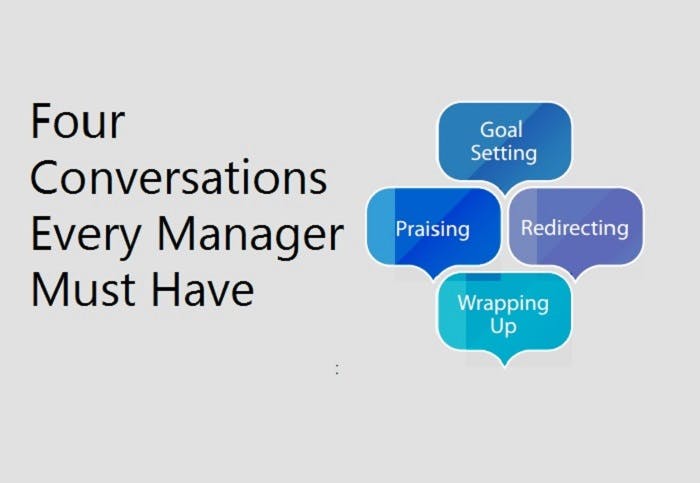Managers play an essential (and often under-appreciated) role in organizations.
Research from the Gallup Organization found the relationship we have with our manager accounts for as much as 70% of our engagement score. That in itself speaks to the impact managers have, and how vitally important it is for them to develop strong, authentic relationships with their team members.
Managers are challenged
However, Gallup’s research also points out that organizations are making it increasingly difficult for managers to succeed in building those relationships – they now have 50% more direct reports than they did 10 years ago and spend 15% less time with each employee.
More troubling still are results from a Harris Poll done on behalf of Interact, which found that 69% of managers are uncomfortable communicating with their employees — a fundamental skill in relationship-building.
Leadership is a partnership that requires commitment and patience to cultivate; and purposeful, intentional, genuine conversations between leaders and staff are the lifeblood of these relationships.
Research conducted by the Ken Blanchard Companies found there are four crucial conversations in which every manager needs to be proficient in order to build relationships and successfully move work forward.
The four conversations
Goal setting: All good performance starts with mutually-created clear and compelling goals – they set employees up for success, growth and development. Goals should illustrate what a good job looks like, document progress milestones, and stretch employees beyond their current performance.
Find ways to make goals meaningful by clarifying their relevance to both departmental and organizational initiatives. Ask employees whether working on the goal will add to or drain their energy, and whether it’s realistically within their control to achieve. Finally, leaders should ask whether employees have any concerns about accepting the goal, while assuring them that, as a leader, your role is to help the employee succeed.
Praising: Praising reinforces behaviors and supports stronger relationships beyond the goal. Praise is a powerful catalyst for reinforcing the behaviors that lead to success. When praising an employee, it’s important it be done as soon as possible after the achievement. Be specific, letting people know what they did right and how the behavior directly benefited the company. By modeling the praise, the leader teaches employees to recognize their own successes and encourages them to do more of the same.
Redirecting: There are times when even a great performer under performs. This is when leaders must have a redirecting conversation to help the employee recognize where and how their behavior or performance fell short. With redirection, it’s important to be immediate and incremental, honest, kind and goal focused, without blame or judgment. Describe the mistake, encourage reflection on impact and solutions, and review next steps. Then reinforce your support and confidence in the employee to perform better in the future.
Wrapping up: As goals are achieved, celebrate results, acknowledge learning, keep people energized, inspire engagement, and promote development by honoring the work that’s been accomplished. These conversations should also promote reflection. Begin by endorsing the employee(s) and celebrating the achievement. If something could have been handled differently, be willing to tell your truth. Encourage lessons learned and career development opportunities. Remember to finish by endorsing the job done well.
A different version of this post appeared on OCTanner.com.
